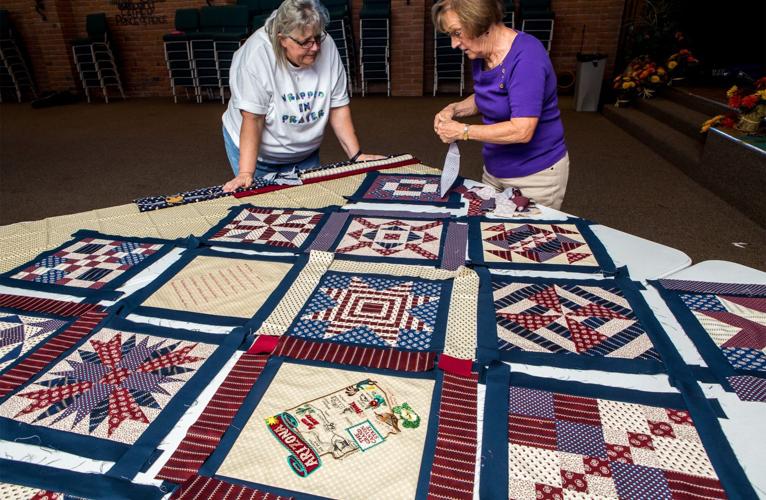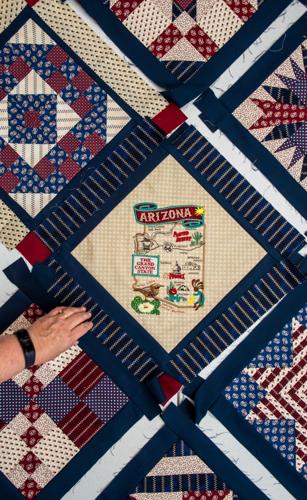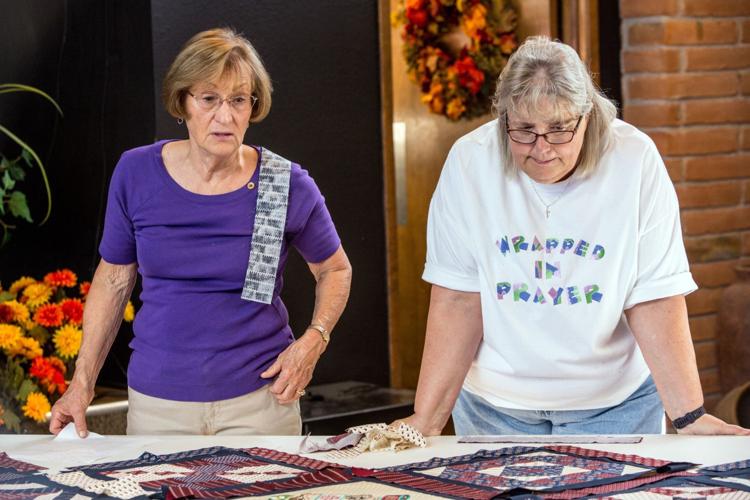Election talk has permeated even some of Tucson’s most sacred spaces.
For the last few weeks — and especially this weekend — the city’s religious leaders have taken to the pulpit not to endorse, but to encourage their people to have hope, pray hard and love big no matter the outcome of today’s election.
At Sabino Road Baptist Church, the faithful returned Sunday evening to “pray for the election itself and our community and our church and to be a positive force toward reconciliation and moving forward,” said the Rev. Joe Stewart, lead pastor of the church.
Rabbi Samuel Cohon of Temple Emanu-El spoke Friday about the social contract between government and its people, and the moral responsibility of citizens to restore decency and promote healing, topics he’ll return to this Friday.
And at the Muslim Community Center of Tucson Friday, Imam Watheq Alobaidi encouraged civil dialogue, following weeks of pushing congregants to register to vote.
Work just starting
But the religious community isn’t about to end the conversation just because Election Day is upon us.
Now the work of healing begins.
In August, Jan Hobbs decided to make the next president a quilt.
The idea came to her while praying over the election and contemplating who to vote for.
Whoever won, she realized, would need prayer.
In February 2011, Hobbs organized a group to make quilts for hurting and burdened people and then pray for the recipient throughout the process. Requests come in for those battling “spiritual, emotional and physical challenges,” she said. The Christian nonprofit Wrapped in Prayer now has 22 active quilters and has made about 650 handmade quilts distributed around the country and the world.
And next up, the White House.
“If anybody needs prayer, it’s our new commander-in-chief, whoever that’s going to be,” Hobbs said.
“It doesn’t matter to me who it is, as far as prayer is concerned. We need to gather as a community and pray for them and let them know that.”
Eighteen individuals have made a block of the quilt, which Hobbs hopes to send to the next president before Inauguration Day, Friday, Jan. 20.
They’ll keep praying, hanging onto faith regardless of the outcome.
“Above all else, God is in control and has brought us through many hard times before, with leaders that are maybe not as stellar as we would like,” she said. “We know that whatever happens, he is still king, and that gives us hope.”
Accepting the outcome
The Pima Monthly Meeting of the Religious Society of Friends will pray through Election Day, opening its building for members to spend a few moments in prayer and contemplation in a politics-free zone.
“The world is in chaos, and in my spiritual experience, when something is too big for me, I release it and say, ‘OK God, it’s in your hands,’” said Vera Lander, a longtime member of the Quaker community. “Election Day will be a day of prayer, and we don’t know the outcome. We just do what the Spirit calls us to do.”
For the Rev. Tom Dunham, pastor of Streams in the Desert Lutheran Church, that means setting up a place of prayer in the midst of the political process.
Streams in the Desert is a polling place.
For most of the day, a few people will man a table outside of the church, ready to pray with anyone about “anything from the campaign to country to personal issues,” Dunham said.
For the faithful who did pray in advance of the election, the next step is trusting God with the results and accepting the outcome, Dunham added.
That means allowing for honest dialogue, recognizing other opinions as valid and ultimately honoring the decision of the majority.
Support one another
That’s why the Rev. Alan Field of New Spirit Lutheran Church is hosting a service the day after the election.
“We want to have an opportunity for people to share in small groups and sit and talk about what it has been like for the past year and a half and how we can step out,” he said. “Some people might be in shock after election results on Tuesday night, so I’m prepared for that, too.”
Field believes some religious communities have worsened divisions, so he plans to share from a variety of sacred texts to look at what each says about healing, unity and peace.
“It seems like there has to be an emphasis on the shared values that promote peace and healing,” said Gil Shapiro, spokesman for Freethought Arizona.
Shapiro believes that community wellbeing in a pluralistic society sometimes requires “putting our personal interests and deep devotions aside” to make it work. He points to a “civic religion” and concepts of respecting diversity, promoting inclusivity and encouraging dialogue as next steps forward.
“I definitely believe that we need to be united as one no matter what faith community we come from, and that has been the hard thing about this election, the slamming of each other,” Hobbs said. “There’s healing if we can support one another, no matter what we believe in.”
Healing requires caring for and helping one another — what “Jesus told us to do in the first place,” Lander said. And that should transcend politics.
“I think that religious communities have a goal to love thy neighbor, and especially getting into the Christmas season now, we hear about peace on Earth and good will toward men,” Shapiro said. “It’s overtly said, so now they need to walk the walk instead of talk the talk.”






